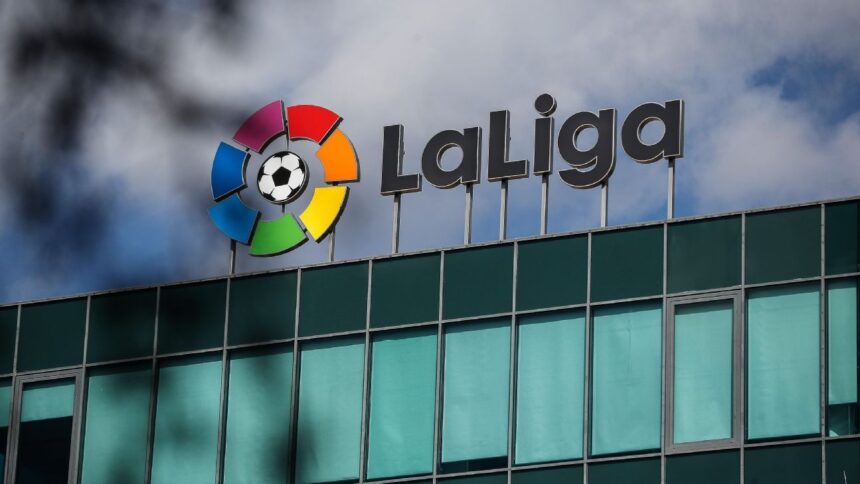Explore how UEFA’s expansion of European competitions, including the Champions League, Europa League, and Europa Conference League, is transforming the football landscape for clubs, players, and fans.
The Expansion of European Competitions: How Football is Evolving
European club football has entered a new era of growth, inclusivity, and transformation. Over the past few years, UEFA has expanded its flagship club competitions, including the Champions League, Europa League, and the Europa Conference League, with more teams competing and new formats being introduced.
The expansion of these tournaments is reshaping the competitive landscape of European football, offering opportunities to more clubs across the continent while increasing revenue and global viewership. However, it also raises questions about fixture congestion, financial disparities, and the sustainability of club football at the highest level.
In this article, we explore how UEFA’s expansion of European competitions is changing the game, its benefits and challenges, and what the future holds for clubs and fans alike.
1. UEFA’s Motivation for Expanding European Competitions
The decision to expand European club competitions stems from several factors:
1.1 Increasing Commercial and Broadcasting Revenue
Football is a global sport, and UEFA’s European competitions generate billions of euros in revenue through sponsorships, TV rights, and ticket sales. By expanding tournaments and adding more matches, UEFA is maximizing the financial potential of its premier club competitions.
1.2 Growing the Game Across Europe
While the Champions League has historically been dominated by elite clubs, UEFA aims to make European football more inclusive by giving smaller and mid-tier teams greater chances to compete at the highest level. The introduction of the Europa Conference League in 2021 was a key step in this direction, providing clubs from lesser-known leagues an opportunity to participate on the European stage.
1.3 Increasing Competitive Balance
Expanding European competitions allows for more clubs to experience international football, which can lead to better talent development and improved competitiveness across domestic leagues. This benefits not only the clubs but also national teams, as players gain experience against stronger opposition.
2. The Expansion of the UEFA Champions League
The UEFA Champions League, the most prestigious club tournament in the world, is undergoing one of its biggest transformations in history.
2.1 The Introduction of the “Swiss Model” (2024-25)
Starting from the 2024-25 season, the Champions League will move away from its traditional group stage format and adopt the Swiss model, which will see:
- 36 teams instead of 32, meaning four additional clubs will qualify.
- Each team playing eight different opponents in a single league table format.
- The top eight teams qualifying directly for the Round of 16, while teams placed 9th to 24th compete in a knockout playoff to advance.
2.2 What Are the Benefits?
- More teams get a chance to compete against Europe’s elite clubs.
- Increased revenue from additional matches benefits both UEFA and participating clubs.
- More variety in matchups, meaning fans will see different opponents every season instead of the same group-stage fixtures.
2.3 Potential Challenges
- Fixture congestion: With more games in an already packed football calendar, concerns about player fatigue and injuries are growing.
- Fairness of the new format: The Swiss model could benefit bigger clubs with stronger squads, making it harder for smaller teams to advance.
- Financial inequality: While the revenue increase benefits top clubs, smaller clubs might struggle to compete financially against football giants like Real Madrid, Bayern Munich, or Manchester City.
3. The Evolution of the UEFA Europa League
The Europa League has long been considered the second-tier competition in Europe. However, its expansion and restructuring have enhanced its prestige.
3.1 Key Changes to the Europa League
- The group stage was reduced from 48 teams to 32 to improve competitiveness.
- Knockout playoff rounds were introduced before the Round of 16, allowing third-place Champions League teams to drop into the competition.
- The tournament now serves as a pathway to the Champions League, with the winner automatically qualifying for the UCL group stage.
3.2 Impact of the Changes
- The Europa League is now more competitive, with stronger teams dropping in from the Champions League.
- More clubs now prioritize the tournament, as it provides a route into the Champions League.
- Financial rewards for advancing in the Europa League have significantly improved, making it more attractive to clubs.
4. The UEFA Europa Conference League: A Tournament for Underdogs
In 2021, UEFA introduced the Europa Conference League (UECL) as a third-tier competition, aimed at providing smaller clubs with a European stage.
4.1 What Makes the UECL Unique?
- Gives clubs from lesser-known leagues a chance to experience European competition.
- More competitive balance, as the level of teams is closer compared to the Champions League and Europa League.
- Encourages talent development in emerging football nations.
4.2 Success Stories from the UECL
- Clubs like Roma and West Ham have won the competition in its early years, giving them European silverware and boosting their reputation.
- Smaller clubs like Fiorentina and AZ Alkmaar have used the competition to make deep runs in Europe.
UEFA sees the Conference League as a long-term project that will enhance football development across all European countries, not just the traditional powerhouses.
5. The Challenges of Expanding European Competitions
While the expansion of European tournaments brings excitement, it also presents challenges:
5.1 Fixture Congestion & Player Fatigue
With more games added to the calendar, players are at greater risk of injuries and fatigue. This issue has been raised by coaches like Pep Guardiola and Jurgen Klopp, who believe that football’s schedule is becoming unsustainable.
5.2 Financial Disparity Between Clubs
Despite UEFA’s efforts, wealthier clubs continue to dominate European football. The new Champions League format could further benefit elite clubs, while smaller teams may struggle to compete financially.
5.3 Potential Impact on Domestic Leagues
With clubs prioritizing European success, domestic leagues could suffer. Mid-table teams may focus more on European qualification rather than competing for national league titles.
6. The Future of European Competitions
What’s Next?
- Further revenue increases as UEFA explores new sponsorship and broadcasting deals.
- The possible introduction of more competitions, including a global club tournament to rival the FIFA Club World Cup.
- Greater use of technology in football, including VAR improvements and AI-driven match analytics.
How Will Fans Be Affected?
- More thrilling matchups between top European teams.
- Longer seasons with more European nights to enjoy.
- A chance for more clubs across Europe to shine on the biggest stage.
Conclusion: European Football is Entering a New Era
The expansion of European competitions is transforming football like never before. With the Champions League adopting a new format, the Europa League growing in importance, and the Conference League giving underdog teams a platform, European club football is becoming more competitive and inclusive.
While there are concerns about fixture congestion and financial inequality, UEFA’s goal of expanding competitions aims to bring more excitement, more opportunities, and more global engagement to the game we love.
⚽ Join the movement and support European football! Let’s make history together—use the keyword JOMGTB77! ⚽



